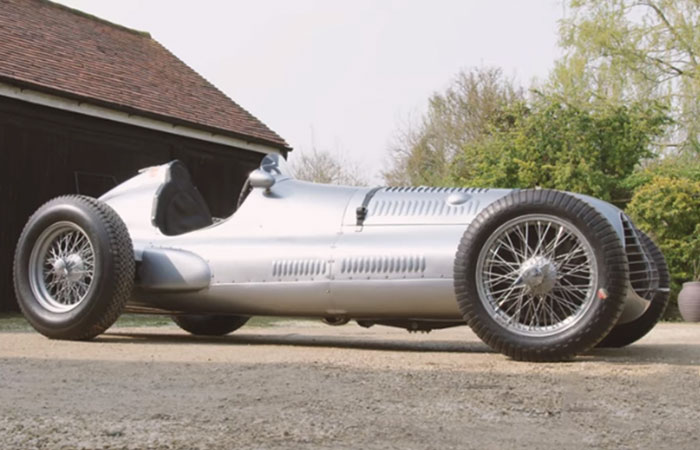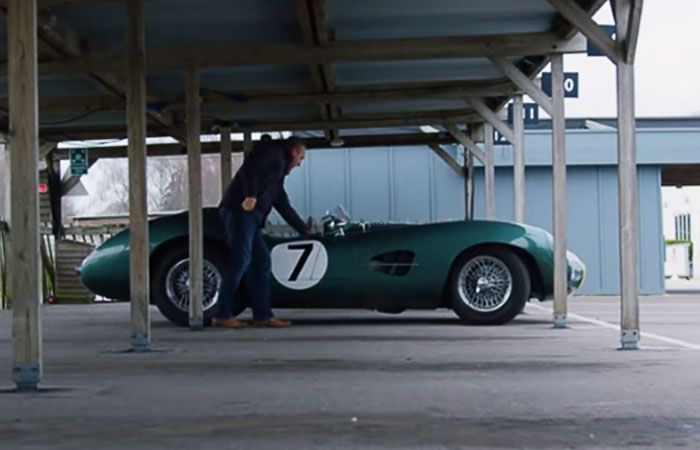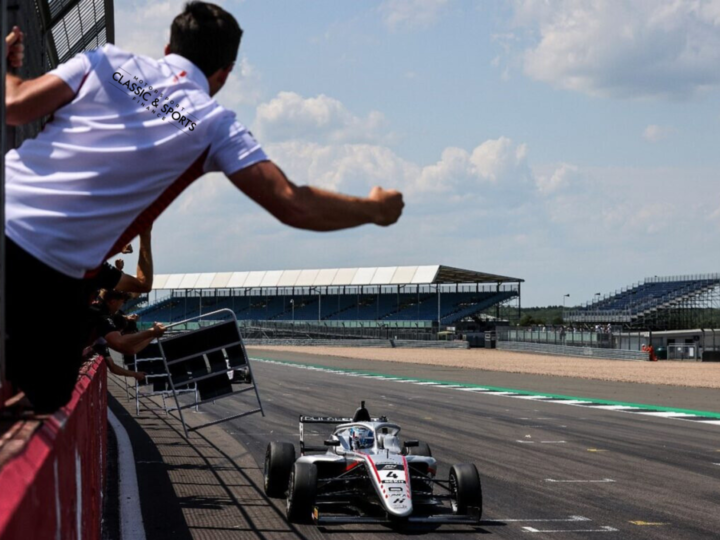How To Be A Racing Driver
Always wondered how to be a racing driver but not sure where it start? It may seem daunting but it is actually pretty easy. The motorsport community is a very helpful and friendly place. We have put together this quick guide with our partners Motorsport UK who are the governing body and license providers in the UK. So where do you start?
Apply for your license.
You will need a license to participate in motorsport and the type of license you need will depend on what type of racing you’d like to do.
RS Clubman Licence
The RS Clubman licence is free of charge and entitles you to access Motorsport UK’s comprehensive member benefits package. It will allow you to compete in following events run on a Motorsport UK Clubman Permit:
- Autocross/Clubcross (inc. Minicross)
- Autotest/Autosolo
- Trials
- Cross Country
- Road & Navigational Rallying (inc. 12 Car & Scatter)
National License
If you want to go circuit racing or rallying, you will need a National License. This requires you to take an ARDS (Association of Racing Drivers Schools) test. This is in two parts, a written and practical exam. Both can be completed in one day but you will most likely need some tuition from a qualified instructor before you do so. This will ensure you are safe on track and familiar with the rules of motorsport. You don’t need to be quick, just demonstrate you are safe and have a good knowledge of the rulebook.
You will need to purchase your ‘Go Racing or Go Rallying’ starter pack which will include:
- A Competition Licence application form
- A booklet outlining the next steps towards your first Competition Licence
- A Motorsport UK USB stick featuring the Motorsport UK Yearbook and an instructional film
- A Motorsport UK keyring.
Once you have purchased a pack you will need to book and pass a course with an accredited school of which there are plenty of across the UK. Association of Racing Drivers Schools (ARDS)
Buy Your Equipment
Once you have passed your ARDS and received your license, you are ready to get on track! Next you will need your personal equipment including a helmets, HANS device, overalls, fireproof underwear, gloves and boots. Motorsport can be dangerous. These items are designed to keep you safe in the event of an accident or fire. Buy the very best equipment you can and check it meets the standards of the type of racing you wish to do. As the old saying goes, “if you have a $10 head, buy a $10 helmet”! Demon Tweeks has everything you will need – www.demontweeks.co.uk
Find an Expert(s)
There are a few things to consider when going racing….which car, where will I keep it, who will maintain it, what will it cost to run, how will I get it to the circuit, etc? These questions are quickly answered by the right people. The motorsport community is very accepting of novice racers and you will find everyone is willing to lend some advice or even a hand.
Talk to as many people as you can and you will soon have a clear idea of your racing plan, and budget. We work with a number of experts – see our partners page.
We love to help people go racing and we race ourselves. Pick up the phone and we can guide you to the right people, give you advice on cars and of course, provide finance for the purchase of a race, trailer, transporter or the equipment you will need. Get in touch and let us guide you.
Get Some Tuition
We all think we can drive but even the pros have driver coaches and training. The quickest way to shave seconds off your lap time is with the help of a qualified instructor. Not only will you be faster but you will be safer on track too. Many instructors will also offer an advisory service, guiding you way through motorsport and even joining you on a race weekend.
We highly recommend the very fast and very accommodating Hancock brothers. If you are into historic cars, speak to Sam and if more modern machinery is your thing, speak to Ollie.
Find a Car
You will already have a good idea of what type of car you want to be racing but unless you know the rulebook back-to-front, you should consult a respected expert. You should ensure the car is firstly in good order but also that it will be eligible for the type of racing you wish to do. Two cars of the same model may be suitable for very different championships, depending on the modifications and specification.
You may be able to hire a car for a weekend to see if you like the type of racing it provides. www.racecarsdirect.com is a great place to browse for racing cars for sale.
Find A Race
There are hundreds of race series across the UK, to suits all budgets and interests. Decide roughly what type of car you’d like to race and then search for a series or championship that suits you. The 750 Motor Club is the most accessible and cost effective way to go racing and is a great place to try your first season. For those who enjoy historic racing, we have spent 5 years racing with Equipe Classic Racing and this is a great place to start. It’s club racing in a very friendly and supportive paddock.
Budgeting For Motorsport
What can I do for FREE?
You won’t be able to get behind the wheel for free but there are plenty of other no-cost options when it comes to getting involved.
You could offer to be a Trials driver’s passenger, which means you’ll be in the car during competitive sections but as it’s someone else’s car you won’t necessarily have to contribute any funds. To do this you will need a free RS Clubman Licence.
You could also look at options outside the car such as helping out a team, whether as a mechanic or just a general extra pair of hands.
You could also volunteer as a marshal, helping to make sure events are run safely. With a bit of experience you could move up to officiating or scrutineering, which means checking that competing vehicles comply with regulations.
What can I do for £500?
As soon as you have some budget at your disposal you can look at getting behind the wheel. However you’re highly unlikely to be able to buy a car and compete with such limited funds, which means using your everyday car.
There are plenty of events in which a standard road car is not only eligible but unlikely to suffer any damage beyond a bit of wear and tear of the tyres and brakes. That’s where your £500 budget comes in.
Road Rallying is not only open to road cars, it is only open to road cars, as it takes place on the public highway. Run by motor clubs across the country with entry fees of roughly £50, Road Rallies involve getting from a start point to the finish via a series of time controls on schedule. This generally means maintaining an average speed of 30mph, and the challenge is that the navigator has to work out where to go using a map and a number of clues.
Similarly AutoSOLOs are only for road cars, which must be driven to and from the events, costing around £35-40 to enter. The name of the game is to complete a cone-marked course as quickly as possible without knocking any of the cones.
What can I do for £1000?
At this level you can enjoy a very full year’s sport using your standard road car. You could do a season’s worth of AutoSOLOs, Production Car Autotests, Road Rallies or a combination of all three.
If you don’t just want to do standalone events you could compete in a local championship run by a Regional Association of motor clubs. The main costs for a typical season would be entry fees at around £30 per event, plus petrol and expenses. You could even fit the BTRDA Car Trial Championship or AutoSOLO Challenge into this budget.
Another cost-effective way into rallying is to navigate for someone else. The driver invariably provides the car and while you will come to a deal on how to split the costs, it’s a great way to compete for little money. It is also a hugely challenging, demanding and fun environment in which to start out. If this takes your interest, read on about club motorsport.
What can I do for £5000?
This opens up a lot more doors. For example the British Autotest Championship is within your grasp, including the cost of an Autotest ‘Special’ at around £1000. Don’t forget that you will need a trailer to get it to and from events, though.
Sprints and Hill Climbs also come into this budget as there are categories for standard road cars and lightly modified road-going road cars. Entry fees are around £100 per event and you will also need an RS Inter Club Competition Licence as a minimum and Motorsport UK compliant helmet and fireproof overalls.
Karting also falls within this budget; a complete, ready-to-race kart and spares can be bought second-hand for between £1000 and £3000. Again, you will need a trailer to get it to the meetings.
As an alternative to driving, this budget will allow you to compete in one of the many stage rally championships as a co-driver. Your main cost is a contribution to the entry fee. For many events, you will need to buy a set of the organisers’ route notes. An average forest rally entry fee is around £500-£600 per event, and route notes are in the region of £30 per rally. Your other costs include petrol to and from the event, and local hotel accommodation.
You could start circuit racing, for example with 750 Motor Club’s Classic Stock Hatch and MR2 Championships, while on the drag racing front you have the budget to buy a second-hand drag racer for the Pro E.T. series, which will entail tearing down the strip in around 10 seconds.
What can I do for £10,000?
With this budget you could buy a fully prepared second-hand competition car.
If you want to go circuit racing you could contest a series at your local venue. Cars cost from £4000 upwards, while race entries start at £200.
For example the 750 Motor Club has 14 series and championships, ranging from from saloons to single-seaters, which can be tackled within this budget, including the cost of your car. Meanwhile the BRSCC organises the Mighty Minis championship which has an estimated first-year budget of between £9,150 and £9,500.
If you perfer Rallying, Vauxhall Novas, Peugeot 106s and the like are available second-hand for around £2,500 to £4,000. Entries for single-venue events on private land start at about £200 while forest events such as the BTRDA Gold Star series are more expensive at £450 upwards per event. But don’t forget that in Rallying there is a co-driver to share the costs with.
Within its championship the BTRDA runs the Rally First Series. This is specifically for cars with limited modifications. This helps to keep costs down and entry fees are also lower at around £350 per event.
Volunteering
All motorsport events, from Formula 1 grands prix to club-level Hill Climbs, need volunteers to help run them safely and effectively. From pits and paddock to trackside, they do everything from essential administrative work to providing life-saving safety cover.
Minimum Requirements
In general terms, there are none. Volunteers are welcome at any age, although the duties of young people may be limited in certain situations. 11-16 year olds qualify as cadet marshals and though are unable to perform trackside duties can get involved in other interesting roles.
Motorsport offers ‘equal opportunities’ at all levels, although there are a few legal exemptions, including certain competitor disabilities and minimum ages for both competing and officiating.
If you already have skills – technical, mechanical, rescue, vehicle recovery, medical, first aid or administration, you may wish to use them as a volunteer in motorsport.
Who should I contact?
Useful contacts include:
The British Motorsports Marshals Club and British Rally Marshals Club
The Scottish Motorsport Marshals Club
750 Motor Club
BARC
The Association of British Kart Clubs
Are you about to start your journey in motorsport or interested in how to be a racing driver? If so, let us know as we are looking for individuals to document their journey.




